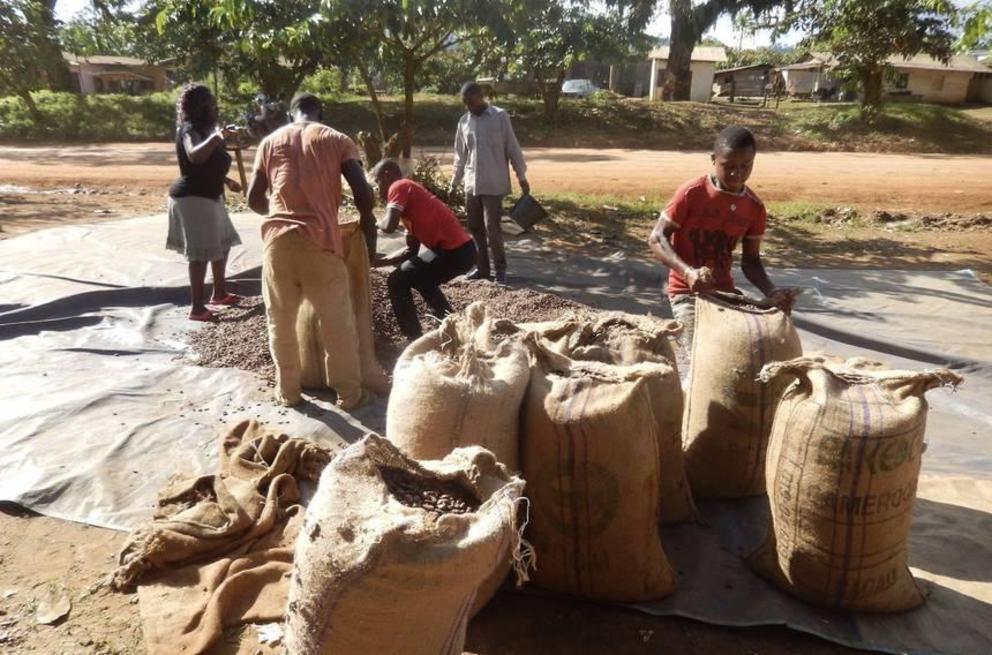Child labor is still a huge problem in cocoa industry
After decades of promising reforms, chocolate companies have failed to deliver.
It has been almost twenty years since leading chocolate manufacturers signed an agreement to eradicate child labour in 2001. Not only did they fail to meet the original 2005 deadline after vowing to achieve it without government oversight, but now a revised goal says it hopes to get rid of only 70 percent of child labor by 2020 – a disappointing scaling-down of its ambitions.
Child labor continues to be a serious problem on cocoa farms throughout West Africa, which produces two-thirds of the world's cocoa. It is so prevalent that reporters from the Washington Post who spent a month traveling through Ivory Coast earlier this year, speaking with child farm laborers and farm owners along the way, said that "the odds are substantial that a chocolate bar bought in the United States is the product of child labor."
The question of "why" is obviously complex. In analyzing why efforts to reduce child labor have failed so far, critics says that efforts have been "stalled by indecision and insufficient financial commitment." For example, the cocoa industry pulls in roughly $103 billion in sales annually, and yet has invested a paltry $150 million over 18 years to deal with child labor.
In the words of Antonie Fountain, managing director of the Voice Network, a group working to end child labor in the cocoa industry:
"The companies have always done just enough so that if there were any media attention, they could say, ‘Hey guys, this is what we’re doing.' We haven’t eradicated child labor because no one has been forced to... How many fines did they face? How many prison sentences? None. There has been zero consequence."
An even bigger problem is the dire poverty that afflicts cocoa-growing nations like Ghana and Ivory Coast. With most farmers making an annual income of around $1,900 on smallholder farms of under 10 acres, and with literacy rates under 44 percent, it is exceedingly difficult to afford schooling for children and much easier to put them to work.
Other child laborers come from neighboring countries like Burkina Faso and Mali that are even more poverty-stricken than Ivory Coast. From the Washington Post report: "At least 16,000 children, and perhaps many more, are forced to work on West African cocoa farms by people other than their parents."
Is there a solution?
Third-party certifications, such as Rainforest Alliance and Fairtrade, are seen as a good choice, as they set standards for wages, working conditions, and environmental stewardship that are higher than the average. However, they cannot always guarantee that there's been no child labor used. Inspections are infrequent, planned in advance (allowing farmers to send children away), and only occur on one-tenth of certified farms.
Even Fairtrade America's CEO Bryan Lew admitted it isn't a perfect solution: "Child labor in the cocoa industry will continue to be a struggle as long as we continue to pay farmers a fraction of the cost of sustainable production."
But perhaps that is where the key lies. Higher prices for cocoa would enable farmers to let the child workers go and alleviate some of the poverty that drives it.
Recently Ivory Coast and Ghana have announced that they are going to jointly raise the price of cocoa by roughly 10 percent, to $2,600 a ton. A representative of Ivory Coast's cocoa board told the Post that the goal is to protect vulnerable families from fluctuating commodity prices and to address poverty, which is why "some parents find it difficult to send their children to school." If the increase actually translates to extra money in the pockets of farmers, then that is a good thing, but more details are needed before we celebrate, as are guarantees that it won't lead to further deforestation.
In the meantime, what is a consumer to do? Bottom line is, pay more for chocolate. (This has the added benefit of helping keep farmers in the industry, instead of abandoning their debt-ridden cocoa plantations for more lucrative crops like palm oil.) Seek out certifications because, at the very least, it signals to the companies that ethics do matter and that people are willing to pay more for the promise of it (even if it's not materializing as perfectly as we'd like).
Paul Schoenmakers, an executive at Dutch company Tony's Chocolonely, which opts to pay an impressive 40 percent premium on its cocoa in an effort to provide a living wage to farmers, put it best to the Post reporters: "It’s absolute madness that for a gift that no one really needs, so many people suffer." Keep that in mind the next time you have a craving, and don't hesitate to fork over the extra bucks for a better bar.

